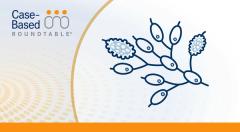
CAR T-Cell Therapy Broadens Second-Line Treatment in LBCL
Matthew Lunning, DO, FACP, discusses the use of CAR T-cell therapy lisocabtagene maraleucel in the second-line setting for patients with B-cell lymphoma.
Episodes in this series

Matthew Lunning, DO, FACP, associate professor in the division of hematology/oncology, assistant vice chancellor of clinical research, and associate vice chair of research in the department of internal medicine at the University of Nebraska Medical Center, discusses the use of chimeric antigen receptor (CAR) T-cell therapies in the second-line setting for patients with B-cell lymphoma.
According to Lunning, CAR T-cell therapies have shown that regardless of the make-up of a patient’s disease they have strong outcomes. In particular, lisocabtagene maraleucel (liso-cel), an autologous, CD19-directed CAR T-cell therapy, has shown significant benefit for patients with early relapsed or refractory large B-cell lymphoma (LBCL).
This recommendation comes from the phase 3 TRANSFORM (NCT03575351) study, which compared liso-cel with standard-of-care second-line therapy in patients with primary refractory or early relapsed LBCL. Patients were randomly assigned on a 1:1 basis to 100 × 106 CAR T-cells given intravenously compared with 3 cycles of salvage immunochemotherapy given intravenously followed by high-dose chemotherapy and autologous hematopoietic stem cell transplantation in responders.
Median event-free survival was significantly better for the patients in the liso-cel arm (n = 92) compared with standard of care (n = 92) at 10.1 months (95% CI, 6.1-not reached) vs 2.3 months (95% CI, 2.2-4.3), respectively (HR 0.35; 95% CI, 0.23-0.53, P < .0001). Lunning discussed how these better outcomes with CAR T-cell therapy make it important to get this therapy to patients as quickly as possible once their disease progresses to the second-line setting.
TRANSCRIPTION:
0:08 | I think one of the things that we often think about at the beginning [of treatment] is do they have certain biologies, whether or not they have double-hit lymphomas, or those who have MYC [rearrangement], as well as BCL2 processes or those with high [international prognostic indictor] risk, or those patients who are either refractory or relapsed after their front-line therapy. I think one of the unique things that has come out amongst CAR T-cell therapy in general, and also when we dive deeper into the liso-cel data, is that CAR T-cells remain agnostic to these features, specifically around genetics, perhaps even having better outcomes…in general, comparatively to the control arm, which was second-line therapy and autologous stem cell transplant. Obviously, if [the patient is] relapsing vs refractory, there can be a spectrum of the disease activity. So, I think getting to the CAR T-cell [therapy] as quickly as possible in [this] primary refractory or even primary progressive patient population is incredibly important.











































